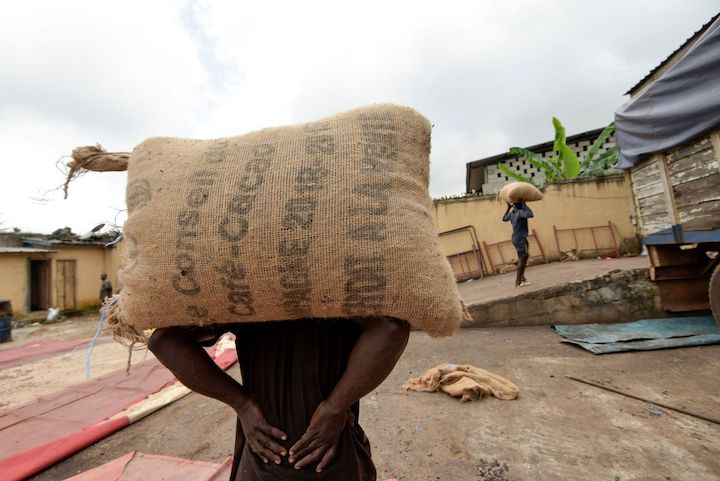Nigerian cocoa exporters, which rely on imported jute bags to package their beans, are facing a shortage after some Southeast Asian factories slowed production due to a surge in coronavirus cases.
International buyers insist on packaging in hydrocarbon-free jute bags to preserve the beans’ quality. Nigeria, which doesn’t produce them locally, relies on imports from Bangladesh and India, which have been badly hit by the outbreak.
“Nigeria might lose between $600 million and $700 million in cocoa beans export earnings if the current scarcity of hydrocarbon-free jute bags in the trade is not tackled urgently,” Mufutau Abolarinwa, president of the Cocoa Association of Nigeria, said by phone from Akure in Nigeria’s southwest.

Nigeria, which is the fifth-largest cocoa producer, could see its projected output of 300,000 metric tons for the 2021/22 season reduce to 225,000 metric tons due a high risk of flooding thi year, according to the association.
That harvest would require at least 3.6 million jute bags, which would cost about $9.5 million at current prices, according to a Bloomberg calculation. The Cocoa Association of Nigeria has put in a request with the Finance Ministry for an import-duty waiver and foreign exchange access to bring jute bags into the country, Abolarinwa said.
Ivory Coast, the world’s top cocoa grower, produces jute bags locally. Ghana, the second-highest producer, hasn’t reported a shortage of bags for cocoa packaging. Meanwhile, Cameroon, the fourth-biggest producer, stocked up in advance, according to Austin Kidzeru, a project manager at Olam Cameroon.
Temitope Eladiya, Managing Director of ZTI Farms Ltd., a jute bag importer based in the commercial capital, Lagos, said his Bangladeshi suppliers have said his order could take up to nine months to arrive.

Follow us on social media: